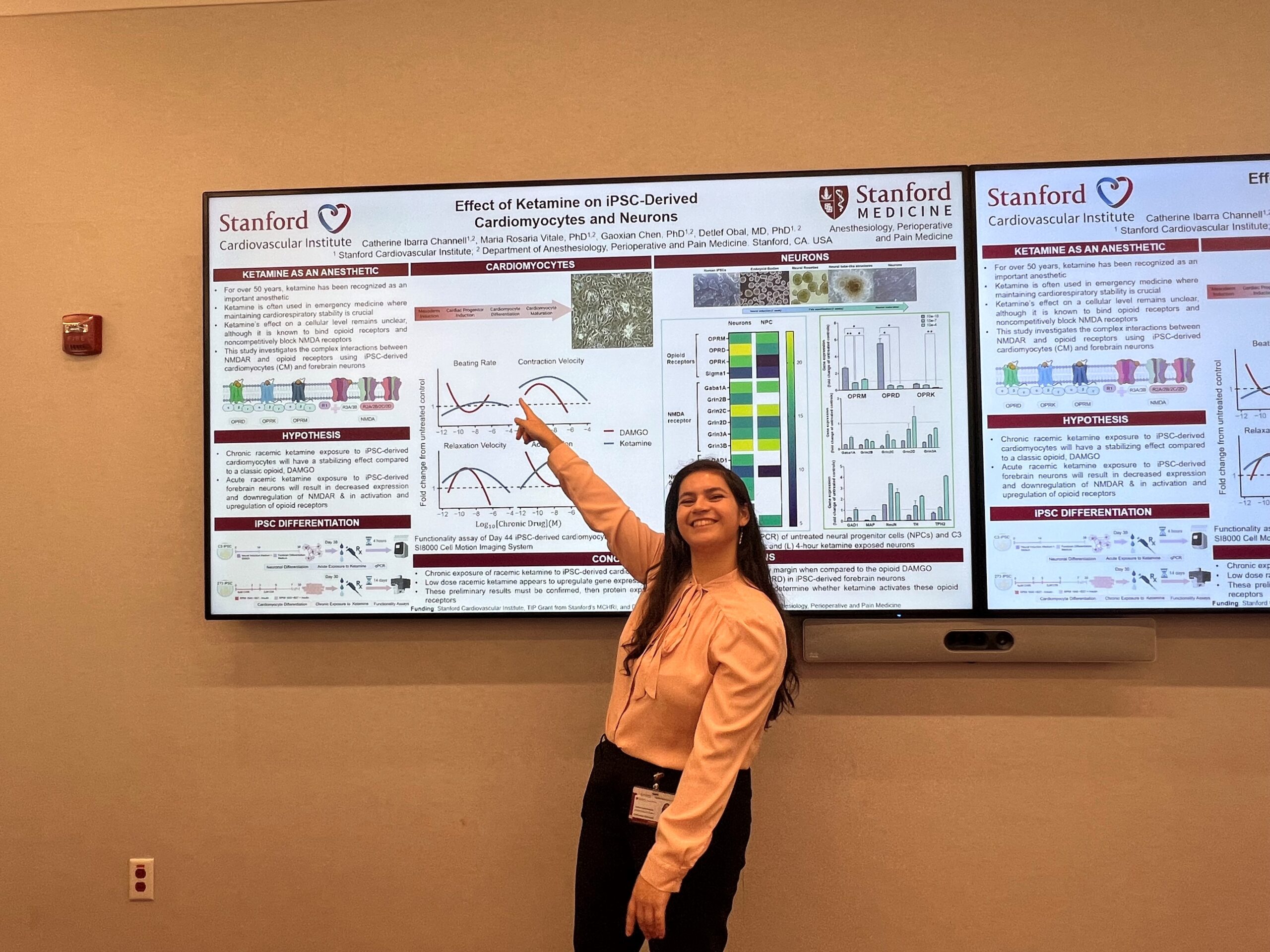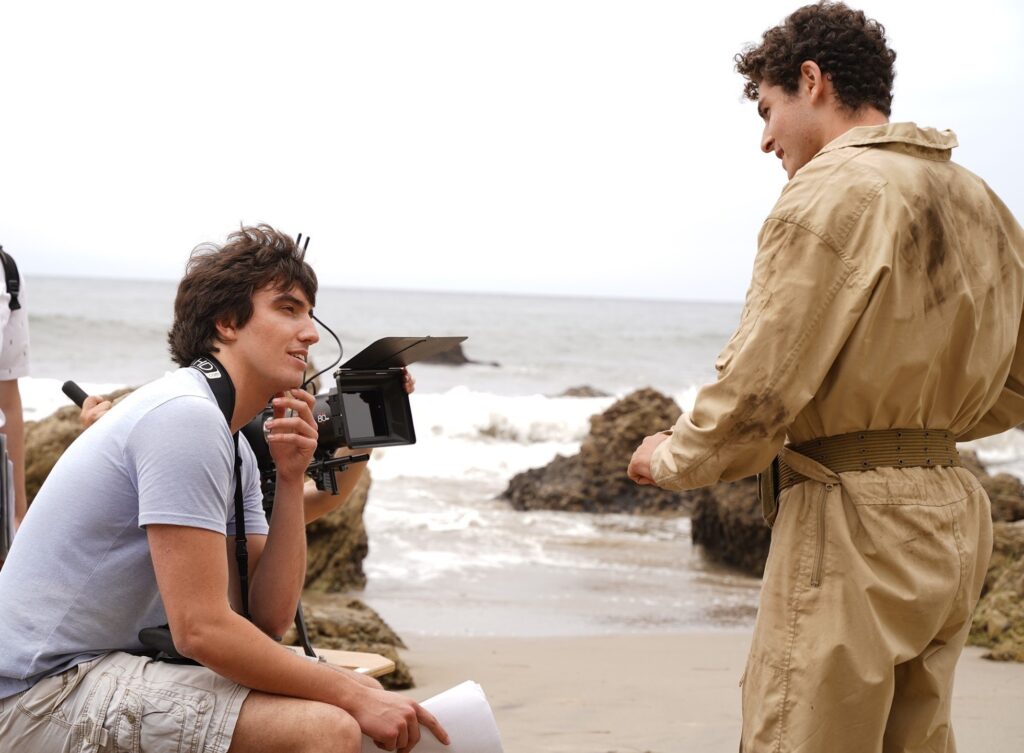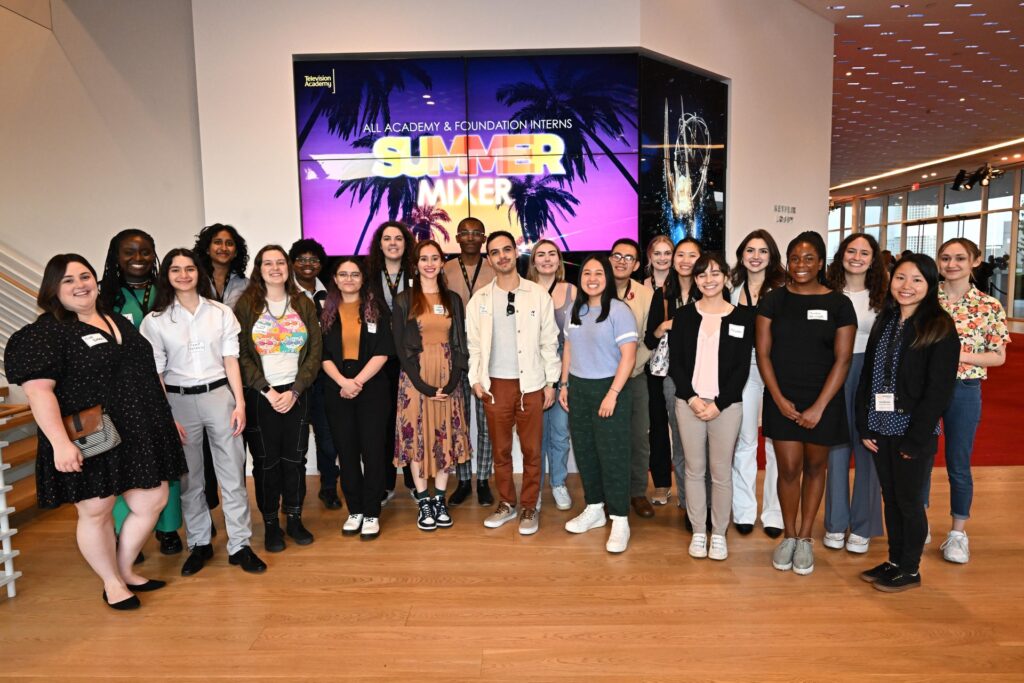
When Catherine Channell ’24 entered college, classes were still being held entirely online. During a period when it often felt difficult to make connections, she credits the supportive and collaborative atmosphere of the University Honors Program for providing her much-needed community.
“That year was a lot of logging in and logging off and not talking to anyone else,” said Channell. “To actually have contact with people outside of your classes [through the Honors Program] was really nice.”
Now a fourth-year student and president of the Student Honors Advisory Council (SHAC), Channell wants to ensure that incoming cohorts of Honors Program students can experience the same sense of community that has been so vital to her LMU experience. In her role as SHAC president, she helps plan the incoming Honors Program orientation.
As a result of numerous conversations within LMU and through the AJCU Honors Community, the Honors Program adjusted their orientation this year to emphasize engaging with community beyond the bluff. Students participated in activities with on-campus resources like Restorative Practices and the Center for Urban Resilience (CURes) as well as local nonprofits like The People Concern and the L.A. Regional Food Bank.
The Honors Program is an environment where experimentation is actively encouraged. This focus on exploration also translates to research experiences and projects that students pursue; for example, Channell has participated in undergraduate research since her first year at LMU, when she began working in Professor Kam Dahlquist’s biology lab.
Professor Jeffrey Wilson, director of the University Honors Program, remarks, “The research projects Honors students undertake reflect the enthusiasm our students have for taking on difficult tasks that deepen their capacity to learn. We are delighted and proud, with the help of generous donors, to provide grants for students to conduct original research and present it nationally and even internationally.”
The collaborative and experimental atmosphere of the Honors Program has also benefited Boris Vesselinov ’24, a film production major. Vesselinov received an Honors Program grant to work on a short film, “Sunless,” that follows two men descending into the depths of the ocean as they attempt to set a submersible dive record. To provide a sense of escalating tension, Vesselinov and his production team experimented with changing the film’s framing as the narrative progressed.
“My director of photography, another Honors student, was talking to me about the film, and he said what if we shrunk the frame throughout the film? At first, I [thought he was] crazy. But then I realized that’s actually a really good idea,” said Vesselinov. “I was also looking for a research question and I said that’s the idea. The process [was] super organic and it’s just so much more rewarding to be collaborating with people. I would never have had that idea if he hadn’t suggested it and now it’s one of my favorite things about the film.”

This artistic experimentation has brought successes on the film festival circuit — “Sunless” was screened at the Palm Springs International Short Film Festival as well as the Manhattan Short Film Festival, making it Oscar-eligible. In total, Vesselinov has made five films with the support of Honors Program grants; this number of films has allowed him to experiment with techniques and to refine his filmmaking craft.
“[I think] the most important thing Honors does is to give students the chance to make their own work. That’s what we’re always going to be most passionate about,” said Vesselinov. “All the students who have done grants have this amazing passion. I think that’s like the most beautiful part of Honors. [The grants] have been completely invaluable to me.”
Honors Program grants allowed Emery Markey ’25 to combine her political science major with her passion and interest in entertainment representation. Sponsored by an grant, Markey, a film studies minor, spent the summer researching under the mentorship of Professor Miranda Banks, an expert on labor in the entertainment industry. This expertise proved useful as Markey researched the history of talent management as well as present issues that managers are concerned about, a topic that was a natural intersection of her scholarly interests and also aligned with her summer internship at a talent management company.

“With the [writers and actors] strikes this past summer [I looked into] the current issues that representatives might be interested in such as pay and AI usage,” said Markey. “One of my future goals is to be a negotiator for entertainment unions or guilds, so I’m hoping to continue my research into unionization and entertainment.”
The Honors 2000 seminar, a required Honors Program class that teaches students about the research process and how to develop a research proposal, was also integral in helping Markey develop her research focus. Additionally, she was able to see the breadth of research questions that honors students engage with and to see similarities emerge across seemingly disparate fields.
“We’re all different majors so it was surprising to see how many of us decided on research questions that overlapped,” said Markey. “For example, a few of us leaned toward representation and media in terms of who actually showed up on the screen. To name a few, how do certain films represent people of color, women, or people with disabilities, if they were included at all. It’s nice to see how coming from different areas of study can influence our approach to research, leading to unique perspectives, but we still end up tackling similar issues.”
The interdisciplinary collaboration available through the Honors Program was something that Channell specifically sought out when she decided to apply to the program. Channell, who has completed research experiences for undergraduates at Stanford and Harvard and is currently applying to medical school, has focused her recent research on precision medicine, which takes into account how genetics and environmental factors may impact a person’s susceptibility to particular diseases. This approach to medicine often involves sensitive but important discussions around the role of race and other genetic factors in health risks. Channell credits the Honors Program for giving her the language to address complex issues in medicine, contextualize them amongst the broader social determinants of health, and translate them to a wider audience.
“Through Honors and the early research opportunities that I’ve had, I’ve realized I don’t just want to become a doctor. I want to become a physician, scientist, and an advocate for my community,” said Channell. “LMU has taught me to bring in those values of learning through service and treatment of a whole person. That’s been my LMU Honors experience. So, as I graduate and I head on to the next steps, I’m very prepared to go forward to those opportunities.”



